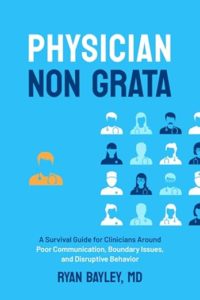The Seven Types of Rest Critical For All Healthcare Workers!

Closing the Gap Blog – February 2021
Over the last few months in my work as a physician coach, I have seen a dramatic increase in physicians and other healthcare providers hitting their breaking point. After a year of COVID, many find themselves chronically exhausted and overwhelmed. Their compassion is tapped and their joy in the work is lost.
When a healthcare provider gets to this point, it needs to be seen as an emergency requiring immediate action. Their focus must turn to self-care with the goal of doing only what is essential to make it through each day – and a key part of this is finding rest and repletion anywhere it can be found.
But I find that with many of my clients, their conceptualization of rest is very narrow – often focused on physical rest and hours away from work. The problem with this is that even when they do get to try to sleep more and have a few days off, they often don’t feel any more repleted when Monday morning comes back around!
This is because sleep, while important, is only one component of rest. Research by Dr Saundra Dalton-Smith and others suggests that there are at least seven types of rest every healthcare provider needs:
Physical Rest – Actually comes in two forms, passive and active. Passive physical rest is the more intuitive and is a good place to start. Do you get enough hours of sleep? Can you fall asleep and stay asleep when you want to? Is your sleep schedule consistent day-to-day?
But just as important is active rest. This refers to any use of the body that feels restorative, and for many can include yoga, stretching, massage, sauna, or hot tub. For some, even more vigorous exercise falls under this category. Unfortunately, as soon as we feel busy, these are often the first practices to go.
Fixing physical rest: Sleep hygiene is critical. Avoiding alcohol, stimulants, simple carbs, and blue light (screens) near bedtime can make a big difference. Truly protecting your sleep schedule and optimizing the environment are especially important for shift workers. Also, making sure that we prioritize those active rest activities, no matter how busy we get, is essential self-care.
Cognitive Rest – Giving our minds a break. We spend all day critically thinking, manipulating data, and making tough decisions. Then many of us come home to do it all again as we try to manage the minutia of our lives and those around us. The mind is not designed to sustain this type of high achieving, high-producing performance with infinite to-do lists.
Fixing cognitive rest: We must shift out of “doing” mode and spend time in “being” mode. Any practice that allows us to slow down and simply observe our experience can facilitate this – including mindful meditation and narrative journalling. However, even much shorter practices that we can do at work, such as the Five Senses Exercise, can make a tremendous difference. Also, writing down our thoughts and to-do items before sleep or before spending time with family can reassure our minds that we will get to these things – just not now – allowing us to be more in the moment.
Sensory Rest – How many beeps did you hear today? Pages and text messages, EMR inbox pop-ups, pulse ox alarms? In healthcare we are bombarded with sensory overload, especially bright overhead lights, sounds and screens. And while we may not consciously register many of these stimuli, they do constantly trigger us at a more unconscious fight-or-flight level.
Fixing sensory rest: We have to unplug. Even stepping outside for 2-3 minutes during our workday can give us critical respite. When we are not at work it is also important to minimize electronic interactions and social media. Something as simple as a ritual of quiet time when driving home, rather than listening to talk radio, can make a palpable difference. Similarly, playing a board game instead of watching tv, or using candles in lieu of electric light, can rapidly reset our overstimulated senses.
Creative Rest – Tapping the “right side” of our brain so to speak. We spend the bulk of our days using our “left brain” as we critically think and problem solve. This makes for a very lopsided use of our skillset and again is not how the brain was designed to work for long intervals. Over time, this can lead to feelings of not bringing our best or complete self, as if there is some part of ourselves yearning to grow or be used.
Fixing creative rest – We need to interject moments of activity that are not utilitarian. This is an active process of making sure that we spend a little bit of time each day doing something which has no functional purpose but rather is done simply for the sake of living artfully. This can be art, dance, photography, crafting, playing an instrument, or even just building a sandcastle with our kids!
Emotional Rest – Best achieved by expressing our feelings and taking a break from the feelings of others. Of course, the paradox is that as healthcare providers we are taught to stuff our feelings and focus on others. But this is unsustainable!
Fixing emotional rest – We need to be heard and have an outlet for how we are feeling, without having to worry about how others feel. Who is your go-to person? Where can you be heard without judgment or feeling like you need to hold back?
This is sometimes proving harder in our disconnected, isolated COVID world. Thus phone calls, letters, and virtual face-to-face time are all really important to prioritize. And don’t underestimate the benefit of professional support. Therapists, mentors, coaches, and peer support groups for healthcare providers (like Balint groups) are all of great value, especially when connecting with friends and family is more difficult.
Social Rest – In many ways this is the flip side of emotional rest. Whereas emotional rest is about connection by being heard and expressing how you feel, social rest is about boundaries and making sure we minimize our exposure to those who drain us. Sometimes we also may need a break from people in general, especially if we are more introverted.
Fixing social rest – Make a list of social interactions you typically have in a week, and ask yourself honestly does each of those invigorate or drain you? What interactions can you avoid? And if not avoidable completely, how can you mitigate? What boundaries do you need to put in place for those draining interactions? Also ask yourself how much alone time do you need and are you getting that?
Spiritual Rest – Like creative rest, this is an active form of rest where we connect with that which feels greater than ourselves. Where do you encounter the ineffable? For some, this may be through faith and religious practice. For others, it may be the sense of overwhelm they feel when contemplating the cosmos and our minuscule place within the unfathomable expanse of space and time. For still others, it may occur when encountering the beauty and complexity of nature or mathematics.
Fixing spiritual rest – Even those of us who identify as non-spiritual or as atheists will still benefit from moments of connection with the two fundamental questions of spirituality: “How do I define and interact with the ineffable?” and, “What is the meaning of life?”
Any activity that prompts these contemplations will refill our spiritual rest needs. Again, for some this may involve a re-commitment to certain religious practices. For others, it may be getting out into nature or stargazing.
Each of these seven categories is a critically important form of rest. It is also important to understand that they cannot be substituted for one another. Thus while we may have adequate rest in one area, we may still feel depleted because we are so lacking in another.
In reading this article, which rest type struck you as your biggest deficit? Also, is there a type of rest that you think that you do not need? (Hint – it might just be the one that unexpectedly repletes you the most if you just try it!). Pick one rest type to focus on, and decide what you will do in the next seven days to get more of it.
And if you need help crafting a plan for repletion and professional sustainability, we offer introductory coaching sessions to jumpstart the process of translating more of your hard work into a sense of greater fulfillment at the end of the day!
 One instance of being labeled a poor communicator, uncivil, or disruptive can wreak havoc on your career.
One instance of being labeled a poor communicator, uncivil, or disruptive can wreak havoc on your career.